Over the last year, artificial intelligence has become a household phrase. AI has made its mark everywhere—from financial markets to college plagiarism guidelines—and it will soon impact our understanding of the Bible as well. Bible translations facilitated by AI, as well as commentaries, concordances, encyclopedias, and other interpretive aids, are already emerging, and many more are on the horizon. Museum of the Bible is pleased to partner with AI & Faith to present Generating Wisdom: Artificial Intelligence and the Bible, a two-day conference exploring the implications of AI for Bible translation, interpretation, and more. Embracing an interdisciplinary approach, the conference will bring together technical and biblical experts to consider the opportunities and challenges posed by the use of AI in both translation and interpretation, as well as the application of biblical wisdom to artificial intelligence as a technological and cultural phenomenon.
Join us online for this two-day conference by registering below.
Registration is now open!
Schedule
Thursday, July 25
9:00–9:15 — Introductory Remarks
9:15–9:50 — Marcus Schwarting: "The eBible Corpus: Data and Model Benchmarks for Bible Translation to Low-Resource Languages"
9:50–10:25 — Cassie Weishaupt: "AI Tools as Quality Assessment Copilots in Bible Translation"
10:25–10:40 — Coffee Break
10:40–11:15 — Ryder Wishart: "AI and Translation: A Human-Centric Approach for Bible Translations"
11:15–11:50 — Randall Tan: "Asking the Right Questions at the Right Time"
11:50–12:15 — Panel Discussion
12:15–1:30 — Lunch
1:30–2:05 — Mark Graves: "Statistical Interpretation of Religious Text"
2:05–2:40 — Sara Wolkenfeld: "Open to Interpretation: The Jewish Canon and the Power of AI"
2:40–2:55 — Coffee Break
2:55–3:30 — David Zvi Kalman: "Should the Torah Speak?"
3:30–4:05 — Elizabeth Robar: "Render to AI What Is AI's"
4:05–4:30 — Panel Discussion
Friday, July 26
8:30–9:05 — Melanie Dzugan: "'Are Any of You Wise and Understanding?': James’s Embodied Epistemology and Norms of Information Flow"
9:05–9:40 — Marius Dorobantu: "Using AI to Refine Our Interpretation of the Biblical Notion of 'imago Dei'"
9:40–9:55 — Coffee Break
9:55–10:30 — Kutter Callaway: "Languages, Texts, and Bodies: Locating Large Language Models and Deep Learning within the Biblical Narrative"
10:30–11:05 — Daren Erisman: "Biblical Tending to Language in a World of Large Language Models"
11:05–11:20 — Coffee Break
11:20–11:55 — Douglas Estes: "Generating Apocalypse: AI, Imagination, and Ancient Apocalypse"
11:55–12:20 — Panel Discussion
12:20–12:30 — Closing Remarks
Speakers
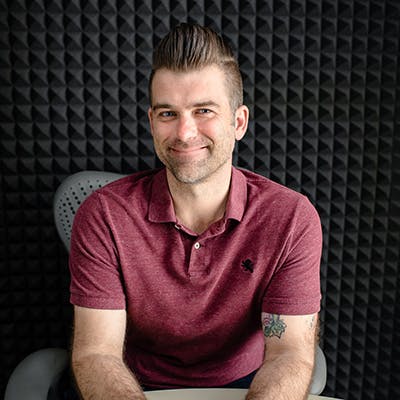
Kutter Callaway, Fuller Theological Seminary

Kutter Callaway is the William K. Brehm Chair of Worship, Theology, and the Arts, as well as associate dean of the Center for Advanced Theological Studies, and associate professor of theology and culture. He is engaged in writing and speaking on the interaction between theology and culture–particularly film, television, and technology–in both academic and popular forums. Kutter holds two PhDs, one in theology and the second in psychological science, both from Fuller Seminary. Recent books include Theology for Psychology and Counseling: An Invitation to Holistic Christian Practice and Techno-Sapiens in a Networked Era: Becoming Digital Neighbors.

Marius Dorobantu, Vrije Universiteit Amsterdam

Marius Dorobantu is a researcher and lecturer at the Faculty of Religion & Theology, Vrije Universiteit Amsterdam, and a fellow of the International Society for Science & Religion. His award-winning doctoral dissertation, at the University of Strasbourg, explored the potential theological implications of human-level artificial intelligence for the notions of human distinctiveness and the image of God. His first book—Artificial Intelligence and the Image of God: Are We More Than Intelligent Machines?—is in press with Cambridge University Press.

Melanie Dzugan, Fuller Theological Seminary

Melanie is a PhD candidate studying Christian ethics at Fuller Theological Seminary with Kutter Callaway. Her dissertation, entitled, “In(Formation): A Post-conservative Theology of Information Flow,” explicates the good formation of cyborg selves through the conservation of contextual norms of communication. She earned an MSc in science and religion from the University of Edinburgh and a BS in science and religion from Samford University. She has served in local church leadership, academic conference leadership, and led small groups for science, theology, and religion with Fuller and Caltech students. She currently resides in northwest Arkansas with her husband, Nick, and baby, Jack.

Daren Erisman, Minot State University

R. Daren Erisman is an assistant professor of computer science at Minot State University in North Dakota, where he established and co-leads a new data science program with undergraduate topics in AI. Serving as an ordained minister in the Evangelical Lutheran Church in America, Daren also holds a PhD in systematic and philosophical theology from the Graduate Theological Union in Berkeley. His research interests include comparative theology between Christianity and Islam as well as the relationship between science and religion.

Douglas Estes, New College of Florida

Douglas Estes (PhD, Nottingham) is currently an associate professor of religion at New College of Florida and edits for Lexham Press. He is the author or editor of twelve books, including Braving the Future: Christian Faith in a World of Limitless Tech (Herald, 2018), and has published more than 50 articles and essays. Douglas's work has appeared in the top peer-reviewed religious studies journals, including Oxford's Journal of Theological Studies, and he has written numerous articles on science and technology for Christianity Today. One of his primary interests is a biblical view of technology. His research into this area has been cited in a variety of sources, including The Atlantic and CNN.com. Douglas is a Fellow at the Center for Pastor Theologians, and in 2021 he was elected to the Studiorum Novi Testamenti Societas. Over the years, he has taught as both a graduate and undergraduate professor; prior to teaching, he served as a local church pastor for more than 15 years.

Mark Graves, AI & Faith

Mark Graves is Research Fellow and Director at AI & Faith and research associate professor of psychology at Fuller Theological Seminary. He holds a PhD in computer science and has completed fellowships in genomics, moral psychology, and moral theology. He has published over 70 technical and scholarly works in computer science, biology, psychology, and theology, including three books.

David Zvi Kalman, Sinai and Synapses

David Zvi Kalman is a scholar, writer, and entrepreneur working at the intersection of technology, religion, and art. He holds research and consulting roles at the Shalom Hartman Institute, Sinai and Synapses, and the Sapir Institute. He is the owner of Print-O-Craft Press, an independent publishing house that has released several books, including Jessica Deutsch’s The Illustrated Pirkei Avot and Noam Sienna’s A Rainbow Thread: An Anthology of Queer Jewish Texts from the First Century to 1969. He has been widely published in both academic and popular publications. David Zvi holds a PhD from the University of Pennsylvania and a BA from the University of Toronto. He blogs at the website Jello Menorah and his work can be found at davidzvi.com.

Elizabeth Robar, Scriptura

Elizabeth Robar grew up wanting to be a Bible translator, but God sent her into academia. After graduate work at Gordon-Conwell Theological Seminary and Southern Baptist Theological Seminary, she received a PhD in Hebrew Bible from the University of Cambridge. She worked as Graduate Fellow at Tyndale House in Cambridge for several years before starting Cambridge Digital Bible Research, now Scriptura, which houses the Psalms: Layer by Layer project. This project provides exegetical resources on the Psalms to Bible translation projects, making one of the most difficult yet strategic biblical books accessible to even first-year translation teams.
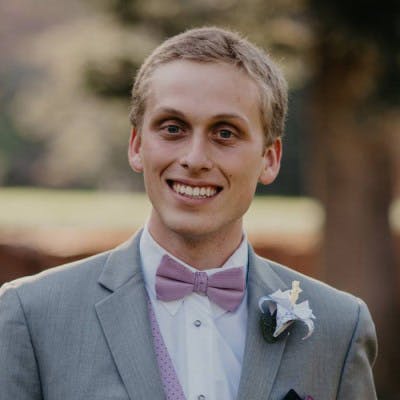
Marcus Schwarting, University of Chicago

Marcus Schwarting is a PhD candidate in computer science at the University of Chicago, where his research focuses on applying deep learning to important challenges in computational chemistry, materials science, and spectroscopy. He graduated from the University of Louisville in 2018 with degrees in mathematics and chemical engineering. After working for four years at the National Renewable Energy Laboratory and Argonne National Laboratory, Marcus began his PhD studies in 2020 under Dr. Ian Foster. Marcus is also a senior editor for AI and Faith and a contributing member of the Partnership for Applied Biblical Natural Language Processing.

Randall Tan, Biblica

Randall Tan, PhD, is senior director of Clear Strategy at Biblica, which is a global ministry innovating new ways to reach people with the Bible. He is also a member of the Assisted Translation Technology working group at the ETEN Innovation Lab and serves on the steering committee of the Partnership for Applied Biblical NLP (a community of practice for computer professionals and linguists using natural language processing for Bible translation). His passion is to open up insights into the biblical languages and the biblical world for all people groups in their native languages. He previously served in various roles at Clear Bible, Inc. (formerly known as Global Bible Initiative, and Asia Bible Society before that), including as VP of Innovation, VP of Product Management, and VP of Biblical Research. He started out his career as an assistant professor of biblical studies at Kentucky Christian University in Grayson, KY, after completing his formative training in biblical & theological studies (MDiv) and New Testament (PhD) at the Southern Baptist Theological Seminary in Louisville, KY.

Wesley Viner, Museum of the Bible

Wesley is the associate curator of early modern Bibles at Museum of the Bible. He curates both the early modern collection and history of science collection at the museum. Wesley is currently a PhD candidate in the history of science at Princeton University, where he is completing a dissertation on Mosaic natural philosophy in early modern England. He holds a prior MA in the history of science, MA in theology, and MSc and BS in computer science. He is a former officer in the US Marine Corps and founder of a software development startup.
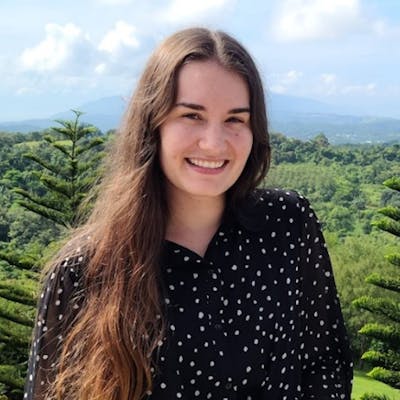
Cassie Weishaupt, SIL International

Cassie Weishaupt is a data scientist serving with SIL International, a faith-based nonprofit that partners with minority language communities worldwide to expand their possibilities for a better life. At SIL, she helps to develop AQuA, a quality assessment copilot for stakeholders in the Bible translation process, and also explores ways the organization can utilize AI in the fight against human trafficking in marginalized communities. Cassie graduated with a BA&Sc in cognitive science and German from McGill University in 2022; she now resides in Cambridge, Massachusetts, with her husband, Luca.
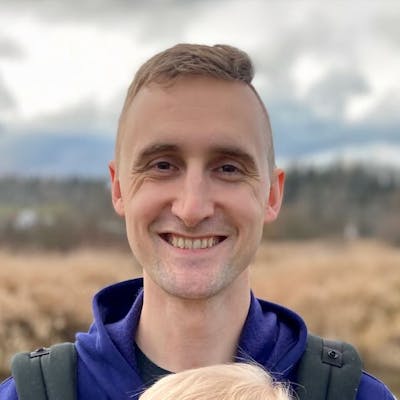
Ryder Wishart, Biblica

Ryder Wishart has a PhD in Christian theology from McMaster Divinity College, where he applied computational linguistics and literary analysis to the Greek New Testament. Ryder is currently working on building AI-powered Bible translation technology with Biblica and Every Tribe Every Nation. He lives near Vancouver in Canada with his wife and four children.
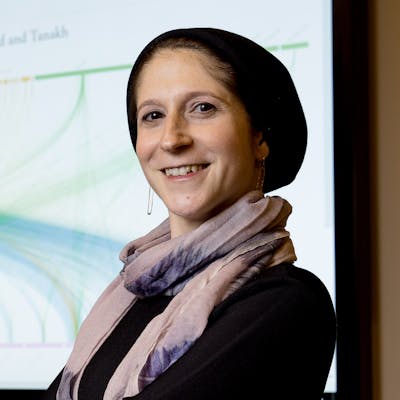
Sara Wolkenfeld, Sefaria

Rabbanit Sara Tillinger Wolkenfeld is the chief learning officer at Sefaria, an online database and interface for Jewish texts. Sara is a member of Class Six of the Wexner Field Fellowship and an alumna of the David Hartman Center at the Hartman Institute of North America. Sara also serves as Scholar-in-Residence at Ohev Sholom Congregation in Washington, DC. She writes about Jewish texts and Jewish law, and her current projects focus on applying Jewish ethics to questions of advancements in digital technology. Sara studied Talmud and Jewish Law at many institutions of Jewish learning in Israel and America, including Midreshet Lindenbaum, Drisha, Nishmat, and Beit Morasha, and speaks on various Jewish topics at synagogues, schools, and university communities.